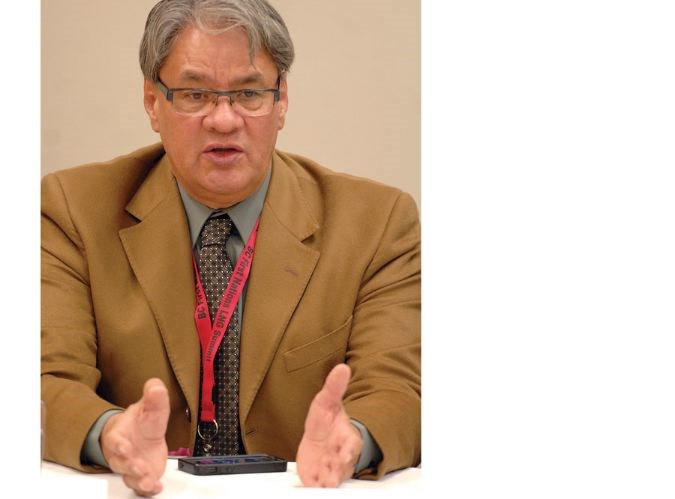While the provincial government rushes to get liquefied natural gas projects up and running before its competitors, First Nations leaders are concerned there won't be enough time to discuss the issues.
"We're really feeling the pressure, not only from the provincial government but also from the proponents and that's a bit of a problem," Carrier Sekani Tribal Council chief Terry Teegee said Wednesday at a First Nations led liquefied natural gas (LNG) conference at the Civic Centre.
"Really we should be dealing with the two levels of government, or whoever is governing the regulatory process, and have discussion there to get our consent."
Federal Natural Resources Minister Joe Oliver and provincial Aboriginal Relations and Reconciliation Minister John Rustad both emphasized the importance of getting products to market quickly during there remarks to a room packed with chiefs from around the province as well as industry and community groups. They also said no projects will be approved unless they're deemed to be safe.
Both levels of government are eager to create the infrastructure to be able to export natural gas from B.C. to Asian markets. That means building thousands of kilometres of new pipelines as well as liquefaction plants on the north coast.
"The responsible development of our resources could be transformative for Aboriginal communities in an extraordinarily positive way," Oliver said, pointing to job opportunities and other economic development that could arise if the mult-billion dollar projects move forward.
But Oliver emphasized the need to act fast, given competition from places like Australia, Qatar and the United States.
Grand chief Ed John doesn't buy Oliver's claim that if Canada doesn't act immediately, Canadian producers will be cut out of the international marketplace. He's made five trips to China and said he's seen first-hand the amount of demand the energy hungry country is seeking.
"That sense of urgency, they're saying it's market driven, if we don't get it to market in China or Japan or Malaysia then we're going to lose the window," John said.
"But we haven't seen anything from any source that tells us there's a sense of urgency."
Rather than rush things, John said he wants to see the process slow down so that environmental and economic concerns Aboriginal groups from around the province have raised surrounding the extraction of natural gas in the northeast, the transportation of the gas through pipelines across the central interior and the construction and operation of liquefaction plants in the northwest.
During a question and answer session with ministers Oliver and Rustad, chiefs brought up concerns ranging from the need to share royalty revenue with First Nations to the environmental impact of using hydraulic fracturing to get the gas out of the ground.
"For us the land is absolutely critical," John said.
"The responsibility we have is to the land and if somebody wants to build a pipeline through that land then we need to have a very thorough assessment of what it means."
Both Teegee and John said First Nations communities have few resources to be able to adequately address their concerns and called on both levels of government to provide more support during the consultation process. Both chiefs said no LNG developments should be able to move forward without First Nations giving free, prior and informed consent.
"It's not just world-class standards for pipelines and tanker traffic, we better have world-class standards for engaging, as the two ministers said, engaging indigenous peoples," John said.
Oliver and Rustad were optimistic that agreement could be reached, but Rustad added that getting every single First Nations group on board is not a prerequisite for beginning development.
"Our hope is we'll be able to bring everyone onside in terms of being able to work and realize those benefits," he said.
"It's not a requirement, but it's what we're hoping to do and that's what we're working to try to do."



